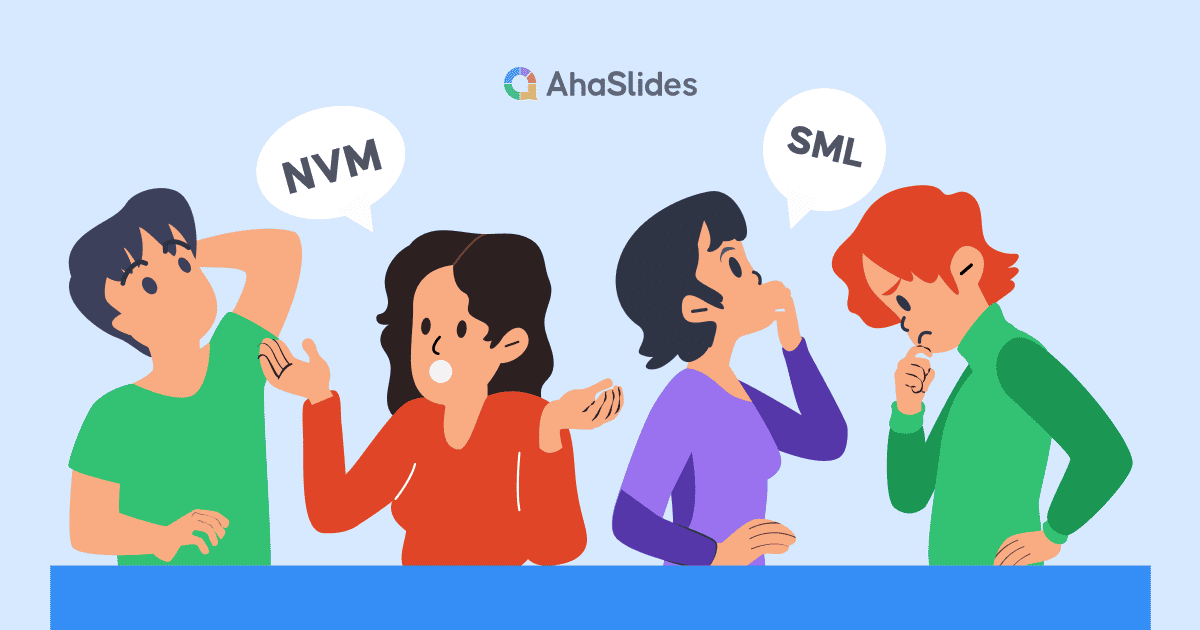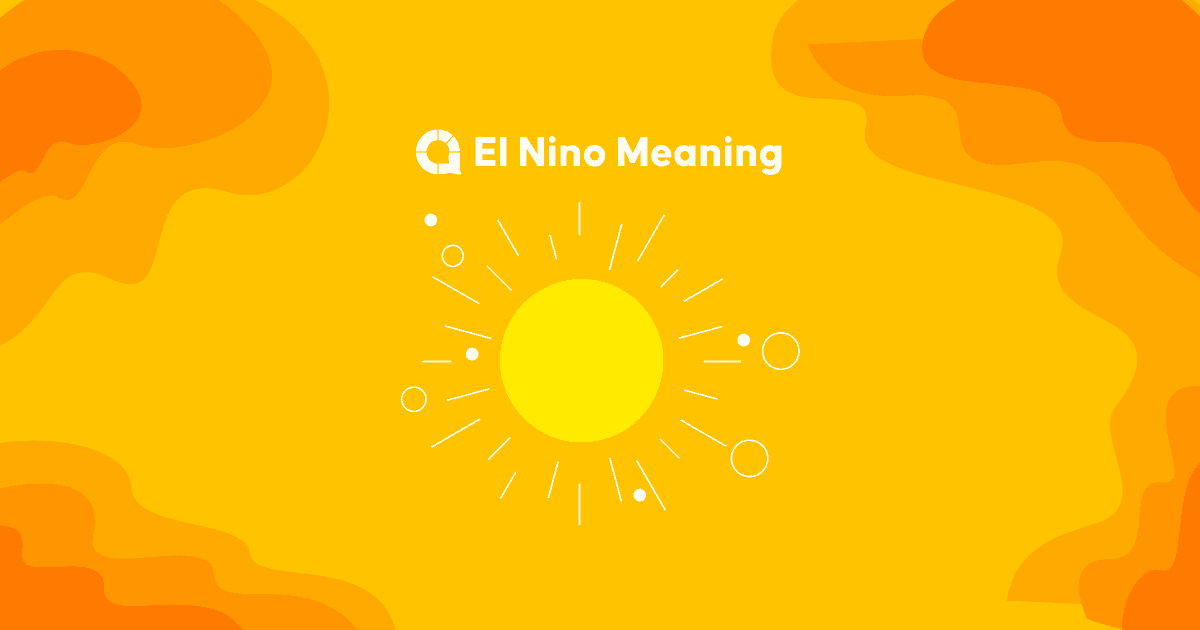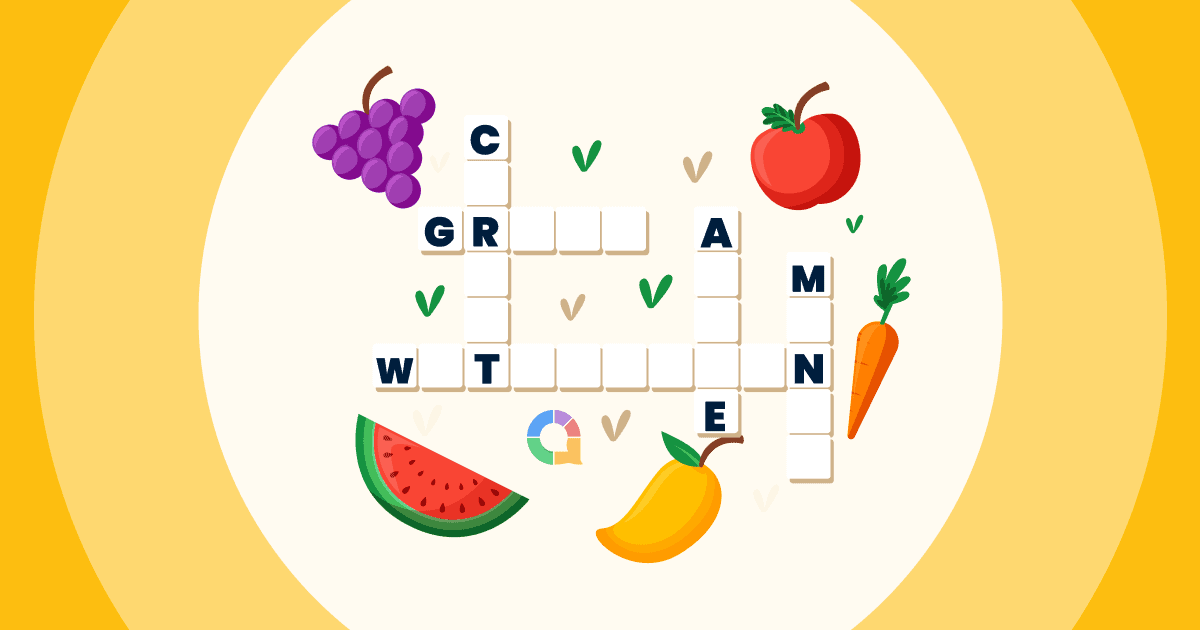華盛頓蘋果 英語俚語 你知道嗎? 正在尋找 2024 年英語俚語示例?
你覺得英文這麼難學嗎?你學英文至少有幾年了,甚至十年了,但仍然無法自然地交流,或難以理解母語人士的表達?你在學校學到的知識和現實生活中應該存在語言差距。
事實上,以英語為母語的人在談話中經常使用英語俚語。 很有可能你過於專注於學習學術詞彙而錯過了學習著名的英語俚語。
在本文中,我們建議使用詞云進行新的學習,以提高您的英語能力,特別是英語俚語能力。 您將有機會訪問 119 多個最著名的英語俚語單詞、短語、它們的含義和在美國和英國使用的示例的最終列表,以及一些古老的英語俚語單詞。
因此,如果您正在尋找俚語列表,請繼續閱讀!
Overview
| 俚語是什麼時候發明的? | 1600 |
| 對 YEET 意味著什麼? | 扔 |
| Sket在英國是什麼意思? | 濫交的女孩或女人 |
目錄

AhaSlides 的更多提示
學習英語俚語的原因
如果你仍然想知道為什麼學習英語俚語單詞是有益的,這裡有五個原因:
- 適應新環境,快速拓展關係網絡
- 提高表達準確率,防止失言和誤解
- 促進歸屬感並與文化和傳統有著深厚的聯繫
- 深入了解當地歷史和往事
- 表達個人觀點和喚起情感,以更新鮮和有意義的方式處理任何類型的對話和演講
英國俚語 – 英語俚語
- 高手 – 用於描述令人敬畏的事物。 一個流行於北方和年輕人的詞。
- 一大堆廢話 ——用來形容不太好的東西。 例如,您的講師可能會將您的論文描述為“一堆垃圾”……。 殘酷的!
- 蜜蜂膝蓋 – 該短語與蜜蜂或膝蓋無關,但它是優秀的成語。 它在 1920 年代與“貓須”一起流行起來。
- 鳥類:這是英國俚語,表示女孩或女人。
- Bevvy – 「飲料」一詞的縮寫,通常含酒精,最常見的是啤酒。
- 血腥:作為英國俚語,“bloody”強調評論或另一個詞。 “真是太棒了!” 例如。 它被認為是一種溫和的咒罵(髒話),但由於它的常見用法,它通常是可以接受的。 例如,“哦,見鬼!”
- 瘋狂的:根據上下文,可表示「瘋狂」或「憤怒」。有人可能“完全瘋了”,也可能“發瘋”(後者也指發脾氣)。
- 胡言亂語 ——做了不該做的事,就會挨罵。 “我沒做作業,老師狠狠地罵了我一頓。”
- 屠夫的鉤子 ——起源於倫敦東區,是一個押韻的俚語,意思是看一眼。
- 不能被罵:一個常用的英國俚語是“Can't be arsed”。 這是說你懶得做某事的不太禮貌的說法。 您可能還會看到這在文本語言中縮寫為“CBA”。
- 乾杯:一個多用途詞,可以用作敬酒、感謝某人甚至說再見。
- 幹掉了 – 是不快樂的古怪委婉說法。 顯然,如果你的奶酪掉了,你會不高興的! 它可以用於休閒和正式場合,例如有人可以說“我很不高興你吃了最後一塊蛋糕。”
- Chuffed:如果有人“chuffed”,他們表示非常高興或高興
- 死:英語俚語中表示「非常」的常用詞,尤其是在英格蘭北部。 “你看到那傢伙了嗎?他真是帥呆了。”
- 驢的歲月 – 顯然驢子已經活了很長時間,所以當有人說“I haven't seen you for donkey”時,他們是在說他們很久沒見到你了。
- 躲閃的: 不靠譜。 一個人可以狡猾,但一個物體也可以:“我想我吃了一個狡猾的咖哩”。
- 十分簡單 – 一種有趣而幼稚的表達方式很容易做或理解。 我們敢於您下次講師解釋某些內容時使用它。
- 滿耳的 – 是用來描述被責備的人的表達方式。 例如,您可能會聽到有人說“他們昨晚太吵了”。
- 完: 倫敦俚語,代表你來自的地區。 代表你的目的很重要。
- 幻想: 用作動詞,表示對某事或某人的渴望。 “我真的很喜歡她”是一種愛的表達,但你也可以問別人:“Do you fancy some lunch?”。
- 鞭打一匹死馬 – 嘗試找到無法解決的問題的解決方案。 例如:“你要求瑪莎搬到英國是在鞭打一匹死馬——她討厭下雨”
- 笑話:用作形容詞,表示“有趣”或“有趣”。 “讓我們今晚進城吧,伙計,這將是個笑話”。
- 我很隨和 – 下次你在一家餐館時,如果你的朋友正在討論要點什麼,就說“隨便點吧。 我很隨和”。 這表明您對他們點的任何菜都很滿意。
- 吉姆果醬 – 是睡衣的俚語,作為學生,您會聽到“我想是時候穿上我的吉姆果醬上床睡覺了——我累壞了!” - 很多!
- 檸檬黃色:如果您認為某人因為害羞或行動遲緩而顯得愚蠢,您可以說他們像檸檬。 例如:我只是像檸檬一樣站在那裡。
- 豐富的:在威爾斯經常聽到,但在英格蘭北部部分地區也聽到,意思是「偉大」或「非常好」。
- 把它排除在外 – 表示您希望某人停止做或說讓您感到不安或煩人的事情。
- 普隆克:指有點蠢或煩人的人。比叫某人「傻瓜」要親切一些。 「別這麼笨」。
- 震驚: 倫敦街頭俚語,表示「害怕」。
- 羅茜李 – 是一杯茶的押韻俚語。
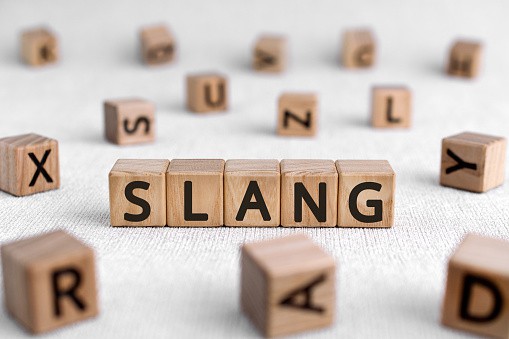
美國俚語 – 英語俚語
- 長號: 失望。 例如。 “那真是太可惜了。 我很抱歉發生了這件事。”
- 小雞: 表示女孩或年輕女子的詞。 例如。 “那隻小雞很搞笑。”
- 寒意: 意思是放鬆。 例如:我會去帕里為我即將到來的假期放鬆一下
- 涼爽: 如同 真棒 意思是“偉大的”或“奇妙的”。 它還表明您可以接受他人提出的想法。
- 沙發土豆指很少或根本不運動、整天看電視的人。例如:“你這個宅男養杜賓犬可不行。”
- 補習班: 瘋狂學習。 例如:我要參加歷史考試,現在我必須盡可能多地補習知識。
- 片狀: 用來形容人優柔寡斷。 例如:“加里太古怪了。 當他說他會的時候,他從不出現。
- 弗里克: 電影。 例如:電影《阿凡達》值得一看。
- hypebeast: 只想出名的人
- 我什至不能!:與後續短語一起使用,表示說話者情緒激動。例如:“這真是太可愛了。我什至無法抗拒。”
- 我不買那個: 我不相信
- 我很沮喪: 可以加入。 例如。 “我很想打乒乓球。”
- 我在比賽我同意。例如:你願意/想做這件事。例如:今晚有人想去夜店嗎?我同意。
- 立刻: 很快。 例如。 “我們很快就會完成作業。”
- 在包裡:北美語,意為醉酒。例如:在酒吧度過漫長的一夜後,他喝得酩酊大醉。
- 糟透了: 質量差/質量差。 例如。 “那部電影糟透了。”
- 跛:酷或奇妙的反義詞。 例如。 “那太蹩腳了,你今晚不能出去。”
- 減輕: 意思是放鬆。 例如。 “輕點! 這是一場意外。”
- 我的錯: 表示我的錯誤。 例如。 “我的錯! 我不是故意的。”
- 沒什麼大不了的 – 沒關係。例如:“謝謝你輔導我,大衛!” – “沒什麼大不了的,拉拉。”
- Once in a blue moon:意思是非常罕見。例如:“他偶爾會來。”
- 派對狂:非常喜歡派對和聚會活動,盡可能多參加的人。例如:莎拉是個十足的派對狂人——她喜歡整晚跳舞。
- 撕掉: 購買價格過高。 例如。 “那個手機殼是個盜版。”
- 同樣在這裡:表示「我同意」。例如:“我為這次考試學習很吃力。” – “我也是。”
- 總分: 得到你想要的,或與你通常剛認識的人發生性關係: 那你昨晚進球了嗎?
- 擰緊: 犯錯誤。 例如。 “對不起,我搞砸了,忘記了我們的計劃。”
- 這就是事情:這真是太棒了或令人滿足。例如:啊,太棒啦。辛苦工作一天后,沒有什麼比喝一杯冰啤酒更清爽的了。
- 太棒了:非常好、非常棒、很酷或令人興奮。例如:你也要去看 BlackPink 的演唱會?太棒了!
- 綁結: 如果你說兩個人結婚了,你的意思是他們結婚了。 例:萊恩五年前和凱特結婚了。
- 浪費 – 陶醉。 例如。 “她昨晚被浪費了。”
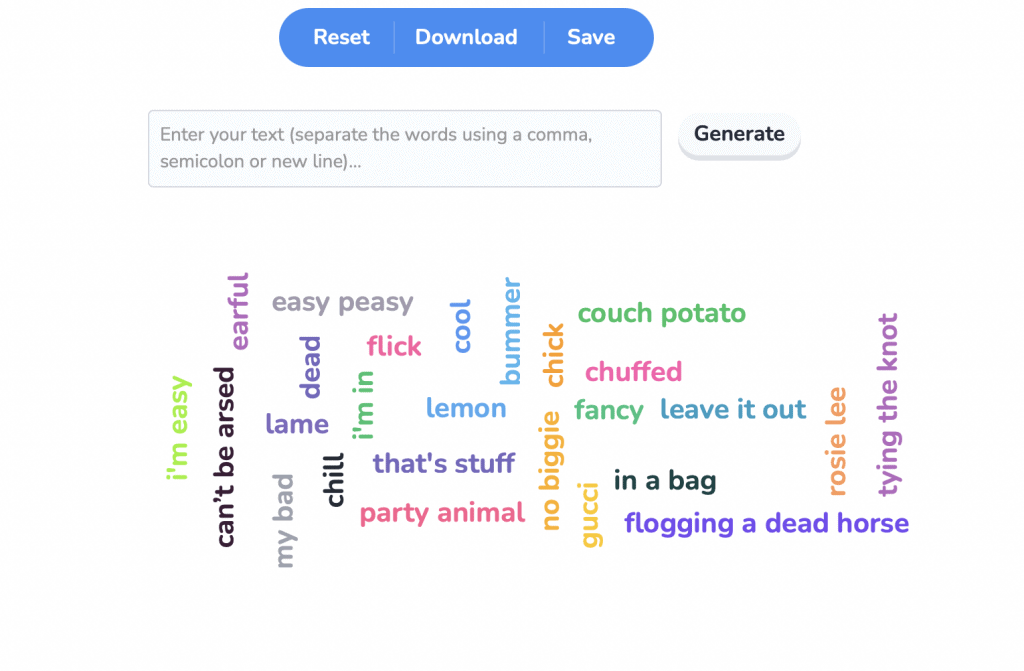
2024 年流行俚語 – 英語俚語
- 點亮:用於描述令人興奮、令人驚奇或很酷的事物。
- 野蠻人:指一些嚴厲的、殘酷的誠實的或令人印象深刻的事情。
- 祕境:「family」 的縮寫,用來指親密的朋友或緊密的群體。
- et:用來表達興奮或熱情,通常伴有身體動作。
- 誅戮:把某件事做得特別好或者看起來很棒。
- Flex的:自豪地炫耀或展示某物,通常與成就或財產有關。
- GOAT:「史上最偉大」的縮寫,用來指某人或某物在其領域中最優秀。
- 裴:另一半或所愛之人的愛稱,是「be before anyone else」的縮寫。
- 發光:指外表或自信方面的顯著積極轉變。
- 茶:有關某人個人生活的八卦或訊息,類似於分享「熱門」新聞。
- 無上限:意思是“不說謊”或“我不是在開玩笑”,通常用來強調陳述的真實性。
- 渴:渴望得到關注或認可,尤其是在浪漫或社交場合。
- 影響力:影響力或受歡迎程度,通常與社交媒體的存在相關。
- FOMO:「害怕錯過」的縮寫,描述被排除在某個事件或經歷之外的感覺。
- 我們逃跑:用來形容某事物完美、無瑕疵或組合得很好。
- VIBE:指某種情況、地點或人的氣氛或感覺。
- 沃科:意識到社會和政治問題,常用來描述一種意識狀態。
- 追求卓越:過分、戲劇化或過度的行為。
- 姐姐: 朋友之間的愛稱,不分性別。
- 鬼影:突然終止與某人的交流,尤其是在浪漫的情況下,沒有任何解釋。
N
2024年最受歡迎的英語俚語
- “效果不同”:用於描述獨特或比平常更強烈的經歷或感覺。
- “我是寶貝”:一種表達脆弱或需要照顧的幽默方式,通常在有趣的環境中使用。
- “沒有氛圍”:表示某種情況或互動沒有正面或愉快的氛圍。
- “這很可疑”:「suspicious」的縮寫,用於表達對某人或某事的懷疑或質疑。
- “心情大好”:表示與某人所說或所做的事情強烈一致或相關的短語。
- “而我哦——”:感嘆詞,通常幽默地用來表達驚訝、震驚或突然意識到。
- “低調”與“高調”:「Lowkey」 表示巧妙地或秘密地,而「highkey」 表示公開或強烈強調地。
- “Periodt”:用於強調陳述的最終性或真實性,類似於“這是事實”。
- “像惡棍一樣冷靜”:這是對「像惡棍一樣冷靜」這句話的戲稱,用來表達一種放鬆的態度。
- “嘶嘶嘶”:笑聲的擬聲表達,常用於短信或在線對話中。
- “我什至不能”:用來表達不知所措、震驚或無法找到詞語來描述某種情況。
- “發送”:鼓勵冒險或毫不猶豫地去做某事。
- “失事”:在經歷了一段困難的經歷後,感到情緒或身體疲憊或精疲力竭。
- “時刻”:指有趣的、尷尬的或相關的特定情況或事件。
- “這是一種氛圍”:描述具有愉快或涼爽氣氛的情況、地點或事物。
- “保持 100”:鼓勵某人在他們的行為或言論中誠實和真誠。
- “氛圍”:對當前時刻或情況感到享受或感覺良好。
- “是啊。”:熱情的肯定或同意,常用來表示興奮或支持。
- “保持清醒”:建議其他人保持對社會和政治問題的了解和了解。
- “我死了”:表達極度的笑聲或震驚,通常用於回應有趣或令人驚訝的事情。
Z 世代俚語 – 最佳俚語
看看 Z 世代和 Alpha 世代的 20 首現代俚語!
- “簡單”:用來描述對自己所吸引的人過度關注或順從的人。
- “煥發光彩”:指外表、自信或生活方式的積極轉變。
- “野蠻的”:描述一些很酷、令人印象深刻或殘酷誠實的事物。
- “芬斯塔”:私人或虛假的 Instagram 帳戶,用戶可以在其中分享更多個人或未經過濾的內容。
- “取消”或“已取消”:指由於察覺到的冒犯行為而拒絕或抵制某人或某事。
- “氛圍檢查”:開玩笑地評估某人當下的情緒狀態或整體心情。
- “Flex”:炫耀或吹噓某人的成就或財產。
- “影響力”:影響力、知名度或認可度,通常通過社交媒體獲得。
- “帽”:是「lie」的縮寫,通常用來斥責某人不說實話。
- “茶”:有關某人個人生活的八卦或資訊。
- “完美”: Describing something that��s perfectly done or looks great.
- “沒有上限”:類似於“真的”或“如實地”,用於強調誠實。
- “害怕錯過”:「害怕錯過」的縮寫,指害怕沒有機會參與某個活動或經驗。
- “我是寶貝”:以幽默的方式表達脆弱或需要照顧。
- “山羊”:「史上最偉大」的縮寫,用來形容某人或某物在其領域中處於巔峰狀態。
- “耶特”:興奮或精力充沛的感嘆詞,通常伴隨著身體動作。
- “而我哦——”:表達驚訝、震驚或認識,經常幽默地使用。
- “TikTok”或“TikToker”:指社交媒體平台 TikTok 及其用戶。
- “害怕錯過”:害怕錯過,描述了因被某事件或經歷所遺漏而感到的焦慮。
- “嘶嘶嘶”:擬聲表達笑聲或興奮,常用於文字對話中。
底線
基本上,如果你的詞彙表中沒有添加一些英語俚語,就不可能像母語人士一樣說話。如果你不常練習,學習新單字會更具挑戰性。如果你正在考慮一個既能有效學習新單字又能享受樂趣的遊戲,不妨試試看。 AhaSlides 詞云.
對於學習者、教育者和培訓者,您可以利用詞云遊戲來幫助您構建炫酷而奇特的語言學習和教學程序。
常見問題(FAQ)
為什麼會產生俚語?
俚語對於非正式交流、表達身份、保持語言動態、表達情感或態度、建立群體聯繫、代溝和反叛很重要。
英國俚語和美國俚語有什麼不同?
英美俚語因文化、歷史和地理影響而有所不同,這些影響包括詞彙、拼字和發音、文化背景、地理差異和習慣用語表達等關鍵因素。值得注意的是,俚語不斷發展,新的詞彙也隨著時間推移而出現,因此上述差異可能並非普遍適用,也可能隨著語言趨勢的變化而變化。
什麼是典型的英國事物?
典型的英國事物通常包括英式幽默、茶、皇室、口音、禮貌、紅色雙層巴士、炸魚和薯條、大笨鐘、陰雨天氣和許多運動!
什麼是典型的美國事物?
刻板的美國事物通常包括美國國旗、快餐、棒球、超級英雄、皮卡車、燒烤、美式足球和感恩節!
